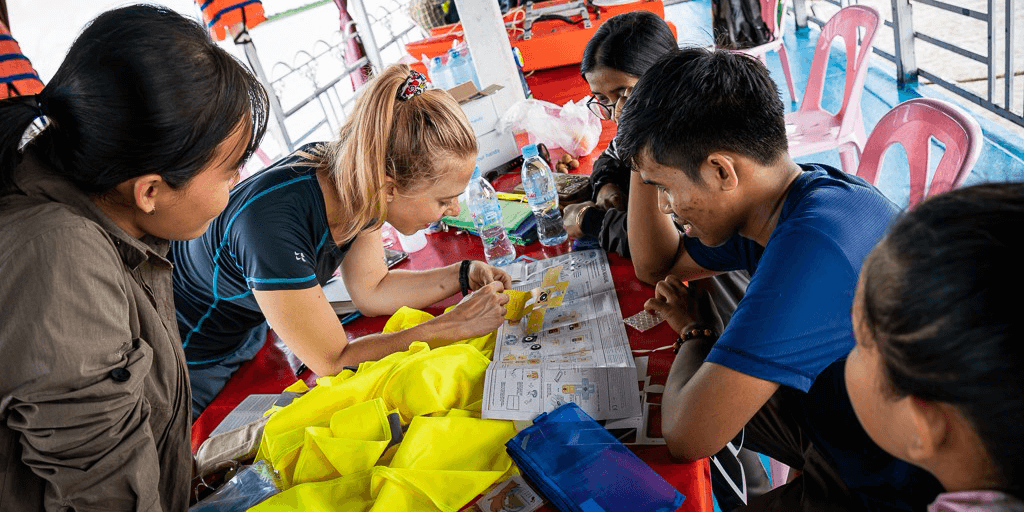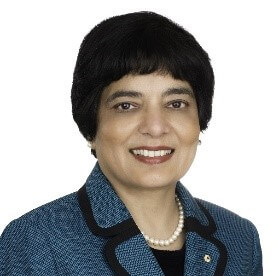
This article is part of the ISC’s new series, Transform21, which will explore the state of knowledge and action, five years on from the Paris Agreement and in a pivotal year for action on sustainable development.
Very few people around the world would recognize the name Eunice Foote, the amateur climate scientist who in 1856 discovered the warming impact of sunlight on carbon dioxide, which eventually became known as the greenhouse effect. Her research was presented at a meeting of the American Association for the Advancement of Science (AAAS) by Joseph Henry of the Smithsonian Institution, as women were not able to attend at the time. Three years later James Tyndall claimed the discovery that gases including carbon dioxide absorb heat, which he is now known for having uncovered. In a story familiar to many women researchers, Tyndall was able to access funding to progress his research and distinguish between the impact of the sun’s rays and other sources of radiation. Nevertheless, Foote’s research is a significant scientific milestone, and impressive despite her lack of access, equipment and training. Her story highlights the importance of women having a voice in addressing climate change and the importance of the contribution that women with education training and skills in STEM can make, as well as the systemic barriers that women face in being heard.
Women are increasingly being seen as more vulnerable than men to the impacts of climate change, mainly because they represent the majority of the world’s poor and are proportionally more dependent on threatened natural resources. Men and women have different roles, responsibilities, decision-making powers, access to land and natural resources, opportunities and needs. In many countries and societies, women are responsible for producing food, collecting water for their households and gathering fuel for cooking. Climate-driven events such as floods, droughts and severe weather have made these tasks harder and put a disproportionate burden on women. However, the women affected have a crucial role in climate change adaptation and mitigation because of their knowledge and understanding of what is needed to adapt to changing environmental conditions and to come up with practical solutions.
Worldwide, women have less access than men to resources such as land, credit, agricultural inputs, decision-making structures, technology and training that would enhance their capacity to adapt to climate change. Climate Change thus reduces women’s ability to be financially independent, and has an overall negative impact on the social and political rights of women, especially in economies that are heavily based on agriculture. Environmental stress arising from climate change was found to be a key limitation on women’s agency, defined as the ability to make meaningful choices and strategic decisions, even when household structures, legal systems and social norms support gender equality.
The ramifications of gender inequality for addressing climate change have two important aspects: women’s vulnerability and adaptive capacity and the role of women in developing mitigation and adaptation actions. Research on responses in Africa and Asia demonstrates how women’s agency contributes to adaptation responses.
In order to develop mitigation and adaption actions, women with science, technology, engineering, and mathematics (STEM) education have a key role to play, not only in advocacy but in leading, designing, developing and implementing solutions. However, a survey by GenderInSite and the International Science Council released in September 2021 shows that the participation of women in national academies in STEM fields was 16%, ranging from 28% in biological sciences to as low as 10% in engineering. The average share of women serving on the governing body is 29% for academies and 37% for international disciplinary organizations. A key recommendation was to increase the participation of women in the leadership and governance of these organizations.

Inclusion and Participation of Women in Global Science Organizations
A study reporting on the inclusion and participation of women in more than 120 science organizations that are coordinated at a global level finds that women are still under-represented. It calls for the establishment of a coalition on gender equality in global science to ensure a transformative action agenda.
The importance of tackling gender inequality to addressing climate change has been recognized by a wide range of organizations. Since its formation in 1980, women have been in the minority in contributing to the work of the Intergovernmental Panel on Climate Change (IPCC). However, in February 2020 the IPCC adopted a policy for gender equality and inclusion and a plan to increase the contributions of female scientists. It’s hoped that this will enable a greater understanding of how global warming is affecting women. In particular, the voices of women from developing countries and regions most affected by climate change will be heard. Currently, just over 30% of IPCC authors are women and the first female vice-chairs were elected in 2015. The participation of women in government delegations and policy makers at the UNFCCC and related meetings also continues to be low, according to the International Union for Conservation of Nature. However, in order to improve the participation of women, the systemic challenge of the low proportion of women in STEM careers, which limits the pool of potential contributors, as well as the dependence on governments to nominate delegates, needs to be addressed.
More women are also needed in leadership positions in business, universities and government as they tend to drive responses to climate change. This is similar to the positive impact of improved gender equality on environmental and social governance, business performance and innovation.
Despite this, women continue to be under-represented on organization boards. For example, a survey of female representation in boards and management groups of large energy companies in Germany, Spain and Sweden showed 64% had no women at all in boards or management groups and only 5% could be considered gender-equal by having 40% or more women in such positions. A more recent report on the participation of women on boards globally, published February 2021, shows the highest in France at 44% and the lowest in Brazil at 12%. In the US women held about 11% of private company board seats in 2020 and 24.3% of 3000 public company board seats at March 2021. At the same time, organizations such as the World Economic Forum Climate Governance Initiative are establishing chapters around the world for company boards to address climate change as a foreseeable risk. Increasing the proportion of women with STEM skills on the boards of organizations, who are able to participate in leadership discussions, has never been more urgent.
Women’s participation in policy-making at national and local level is also important. Research from a large number of countries shows that female representation in national parliaments leads countries to adopt more stringent climate change policy and lower greenhouse gas emissions.
Climate change is a complex global phenomenon with no boundaries. Global action is needed by men and women. There is an imperative to consider diverse perspectives and a diversity of solutions. Policy-makers and scientists need a robust framework that considers all aspects, compensates for unconscious bias and can address knowledge gaps. An inclusive approach – one that includes the voices of half the world’s population – will assist in accelerating the agreement on the changes we need to make. Women have the skills and the ability to make an effective and important contribution, they simply have to be let into the tent.
You may also be interested in:

Marlene Kanga, AM FTSE Hon.FIEAust Hon. FIChemE
Marlene was President of the World Federation of Engineering Organizations (WFEO) between 2017 and 2019. WFEO is the peak body for engineering institutions internationally with members from 100 nations, representing 30 million engineers. She was the 2013 National President of Engineers Australia and Council member from 2007-2014.
She’s a Non-Executive Director of some of the largest organizations in Australia in utilities, transport and innovation. Marlene is a Fellow of the Australian Academy of Engineering, an Honorary Fellow of Engineers Australia and an Honorary Fellow of the Institution of Chemical Engineers (UK). She was listed among Australia’s top 100 engineers that have contributed to Australia in the centenary of Engineers Australia in 2019, among Australia’s Top 10 women engineers and is a Member of the Order of Australia in recognition of her leadership of the engineering profession.
Photo: Dan Parsons (distributed via imaggeo.egu.eu).